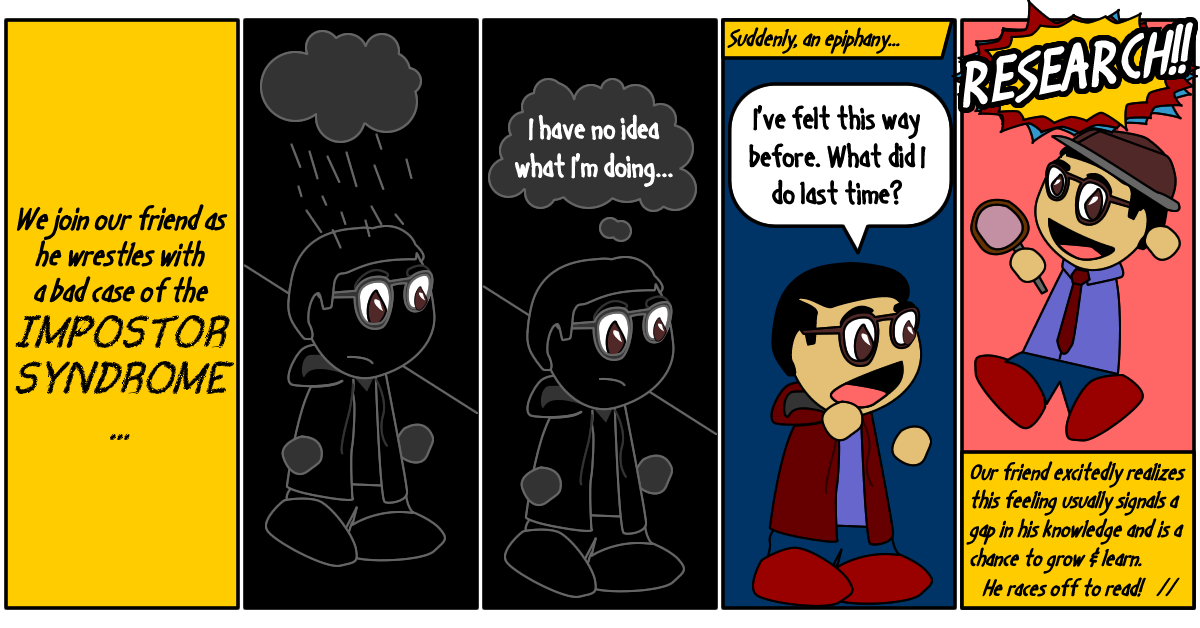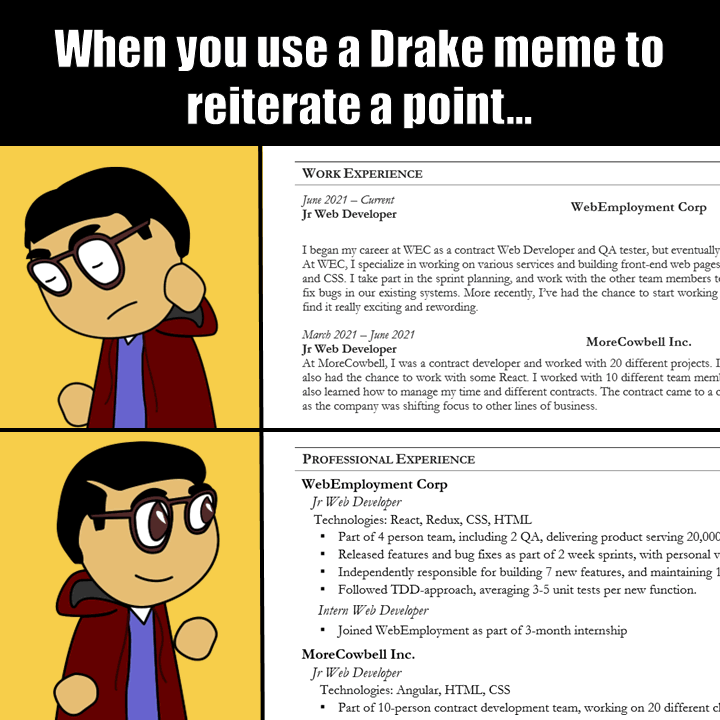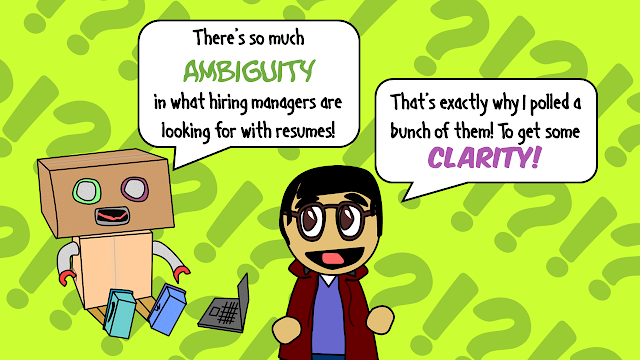Impostor Syndrome and #LifeHacks
I wonder if psychologists hate the over-use of "Impostor Syndrome" the way techies hate when one of our terms gets overused (ahem... #LifeHack)
With that in mind, while the term may get over-used, I don't think you can over-discuss strategies for coping with the feeling.
Whenever I talk about it with others the common thread is a sense that you never truly belong because you are never confident that you know enough, are talented enough, or grasp complexities fast enough.
It can be so humbling when you see someone make some logical leap and create a solution out of thin air. It leaves you thinking: "I could never do that..."
But that's why experience is so valuable. Professional experience, personal experience, project experience - all that hard work turns into potential solutions for future problems. Unfortunately we rarely see the hard work others put in, so their solutions seem to appear out of nowhere. As a result, we doubt ourselves.
Gaining experience takes time, and like I said - hard work. Fortunately, there's a (cough cough) #LifeHack for gaining great experience quickly: You can learn a lot from second-hand & third-hand experiences, and it takes much less effort: research, reading, watching YouTube.
That's how I cope with the Impostor Syndrome - and it's incredibly motivating. Rather than fall into a vicious cycle where you feel less confident, then less motivated, then less skilled, researching your knowledge gaps helps you bridge them quickly, and creates a virtuous cycle where you are less overwhelmed by the next knowledge gap you encounter.
Next time you feel like an impostor, ask yourself: What is the topic or area that is making me feel this way. Then go and Google it. Search on YouTube, on Amazon, on Reddit. You don't need to reinvent the wheel, you just need to know how the wheel works.





